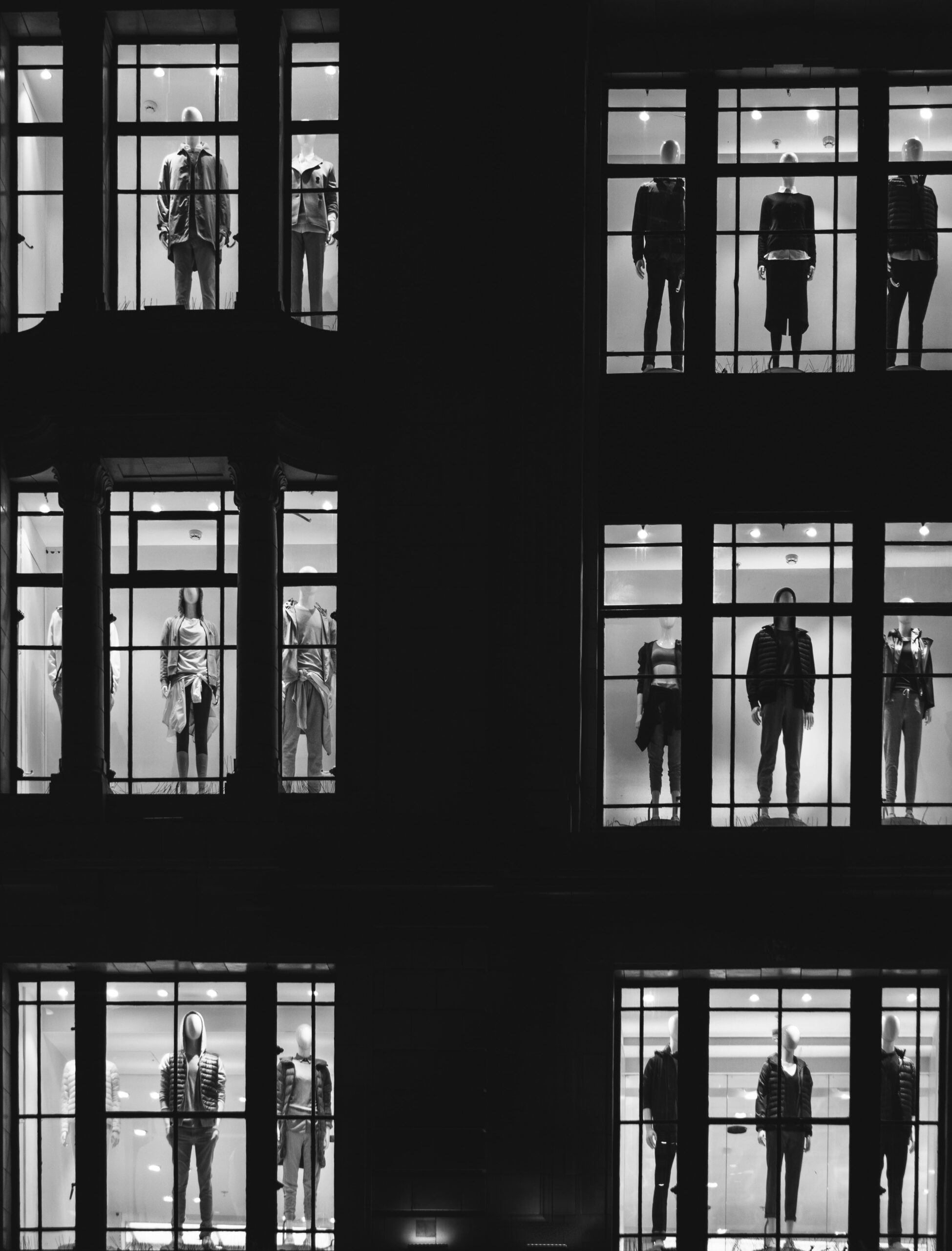“Black excellence”. The buzzphrase of 2020 and beyond. Seeming to have taken on a life of its own – the concept has introduced a championing of Black voices in a way we have never seen before. Unlike any other point in history, the idea of Blackness was being celebrated by mass media. Propped up and labeled revolutionary, white businesses – and consumers – were scrambling to Buy Black at all costs. Yelp introduced minority-owned business badges, conglomerates paid out grants and scholarships to nonprofits and DEI teams, all in the name of proving allyship.
The notoriously exclusive fashion industry was no different. So then came Pyer Moss, a radical brand built by Kerby Jean-Raymond, a Black Brooklyn native. His goal with the brand? To be Black AF. In 2015, only two years after its conception, Jean-Raymond did just that with his first runway show. The show featured footage of police brutality against Black people, with family members of those directly affected by police violence sitting front row. The clothes were donned with the phrase “I can’t breathe”, paying homage and honor to Eric Garner, a Black man who was killed by the police just a year earlier.
And Pyer Moss, and its owner Jean-Raymond, were just getting started. Through the years, Jean-Raymond became an industry success anomaly. In a whiter than white world, Jean-Raymond was the exception. His presence became idealized, with larger, whiter companies rallying for his prosperity. Jean-Raymond was backed by white allies not only through being presented with endless opportunities, but more importantly, with the financial resources to make it happen.
And then it fell apart. Earlier this week, an expose was released on The Cut, questioning the validity of the brand, and more so, its leader. The article interviewed many anonymous former employees and current industry professionals who called into question Jean-Raymond’s direction (or lack thereof) with Pyer Moss. They highlighted Jean-Raymond’s coarseness towards his staff, which resulted in harsh firing practices and discontent amongst team members. It also led many to question where the brand was *really* going, with a seemingly endless amount of funding and little to no product.
And while all that is interesting, we wanted to talk about something else. Modern leadership. In an industry where bosses are known to break down employees – is Kerby Jean-Raymond’s behavior anything different? Is the fact that he’s a Black man taking up space in an industry that’s not meant for him the reason for this expose? And even more puzzling, why is behavior that is so problematic normalized for some and not others? Or maybe even the biggest question of all – why has it been normalized PERIOD?
Black leadership is rare. It’s often reached by white allyship, and whether that allyship is self-serving is a question for another day. But once it is reached, it’s never fully secure. Always under a microscope, Black leaders often feel they have to be the best of the best of the best. And most Black people in corporate systems acknowledge that their mistakes, no matter the degree, are unforgivable.
This undue pressure makes it difficult to create environments that cultivate success. When you’re constantly worrying about what comes next, your mind can never focus on the present. You wander to all of the possibilities of what could be, instead of embracing what is.
Black leadership is necessary. It offers a different perspective. It brings endless creativity and humanity to any industry where it’s present. And while we need to be critical of the modern leader, we also need to recognize where these critiques come from. In the case of Jean-Raymond, we’re not defending unethical business practices. We’re questioning how this came to be, why it came to be, and where we can go from here.





0 Comments